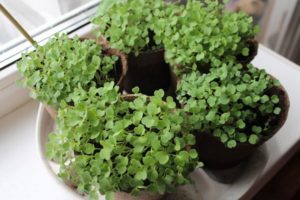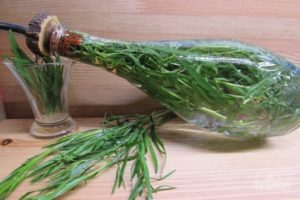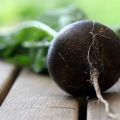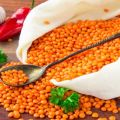Useful properties and contraindications of artichoke, harm to human health and use as a medicinal plant
Artichoke (lat. Cynara) is a rather exotic plant for the middle latitudes of our country and not all vegetable growers are ready to start a complex experiment on its cultivation. The plant is whimsical and thermophilic, since Italy is considered its homeland, where the climate allows you to grow an unusual culture without much hassle. Russian lovers of exoticism should also think about its cultivation, since the benefits of useful properties and a small number of contraindications put the artichoke in a row with medicinal herbs.
Description of the plant
Cynara is a herbaceous species of Asteraceae. What is used for food and for medicinal purposes is an unblown bud: at a young age - buds-flowers, in a mature age - buds-cones. It is formed by fleshy scales with a diameter of up to 7.5 cm, which is why it is often called a vegetable. It tastes like an unripe walnut when raw.

The grass is formed by a low, erect stem, which is framed by wide, feathery leaves. The lower leaf layer is covered with whitish hairs, and a dense rosette of leaves is formed at the base. In appearance, the plant looks a bit like a thistle, since when it blooms, flowers similar to it bloom in purple shades.
Greek word translation Cynara means "dog" because of the fruit scales that look like the sharp teeth of a dog. It is most popular in California, where it is widely consumed and produced for other states.
The field artichoke grows in a number of countries (Australia, South America) in the wild, where it is considered a weed that is being controlled. Only 2 of 10 species are grown as vegetables - Spanish artichoke and prickly artichoke.
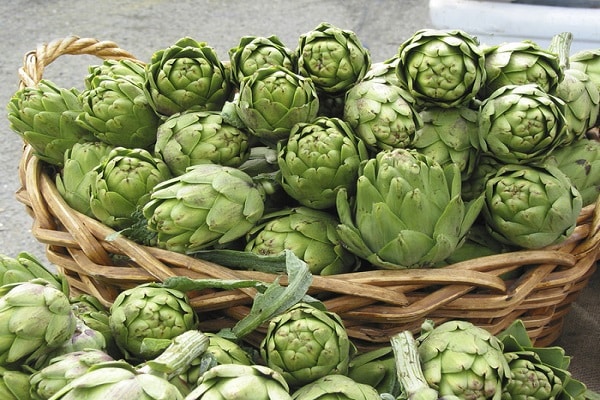
In Russia, it is cultivated in the Krasnodar Territory, where varieties of domestic selection are selected: Early violet, forming rounded inflorescences, which are green when unripe, and have a purple color when mature. Laonskiy variety, capable of withstanding low temperatures and their drops. Round green and Maykop 41 are also popular.
The benefits and harms of artichoke
The health benefits of a plant are related to its composition. The artichoke is rich
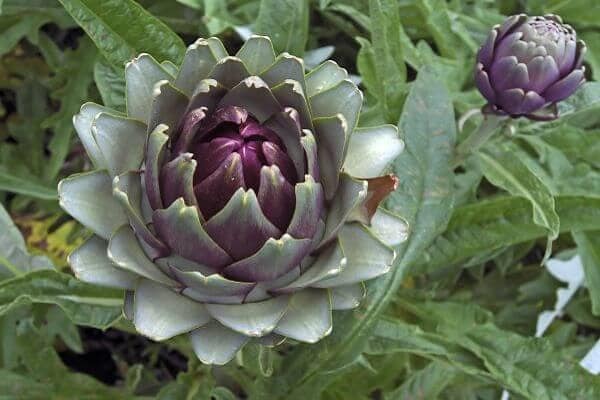
- phosphorus, potassium, magnesium, calcium and other macronutrients;
- manganese, zinc, iron and other trace elements;
- vitamins A, C, P, K, group B, carotene and inulin;
- various organic acids;
- essential oils contained in the leaves.
The most significant is inulin, which works in two ways: increases the number of bacterial colonies in the intestine and lowers blood sugar levels. Another important substance is cynarin, which normalizes cerebral circulation. It is a means of preventing atherosclerosis. In addition, cynarin has a diuretic and choleretic effect.
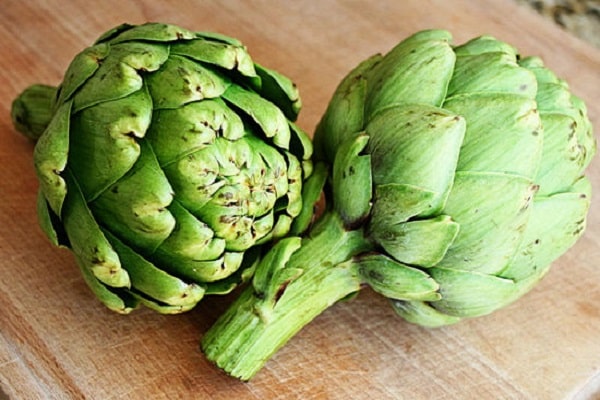
Cynara has a minimum amount of calories (100g less than 50 calories). This allows people who are looking after their figure to remove those extra pounds.
The benefits for the human body have been discovered by ancient healers and confirmed over time by scientific research. Artichoke buds have:
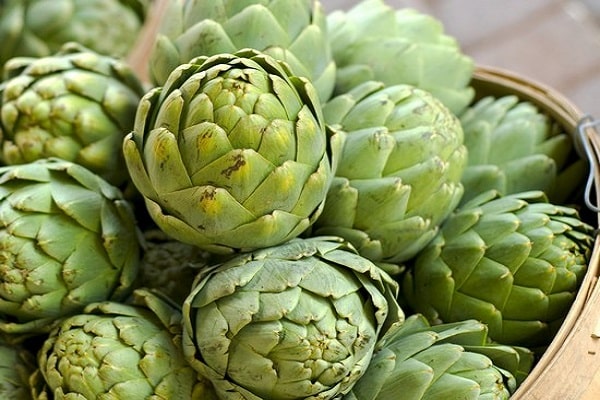
- diuretic and choleretic effect;
- drainage effect for the liver and kidneys, which allows you to remove harmful compounds;
- the ability to reduce the amount of cholesterol and uric acids;
- a positive effect on male potency;
- deodorant effect, allowing to remove the smell of sweat;
- alkaline reaction after heat treatment, which reduces the level of gastric juice in excess.
Knowing the effect of a medicinal plant on the body, pharmacists have created medicines that have a beneficial effect on the liver and digestive tract. Dry and water extracts of the leaves are prepared, the drink "Bitter Artichoke" is known.
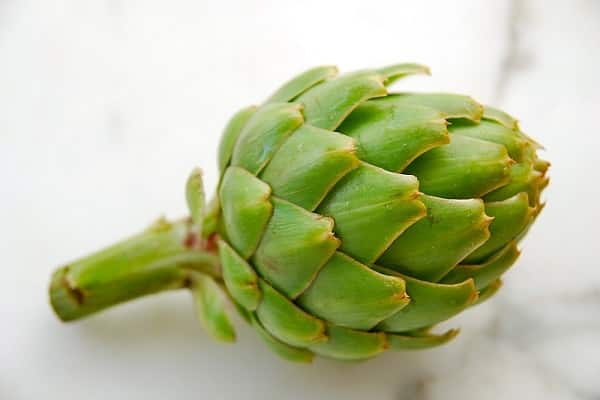
Cynara also has negative sides. An eaten small and delicate vegetable will not do harm, but it is advisable to cook a large one using heat treatment: over time, it becomes hard and becomes less edible. When the inflorescence has opened completely, and the leaves have become brown, the vegetable is not eaten.
The unpleasant consequences also include a decrease in pressure when using it, especially for those who have this indicator already low. Due to the polyphenol in the composition, due to which there is an active outflow of bile, it is undesirable to introduce it into the diet for cholecystitis and problems in the work of the biliary tract.
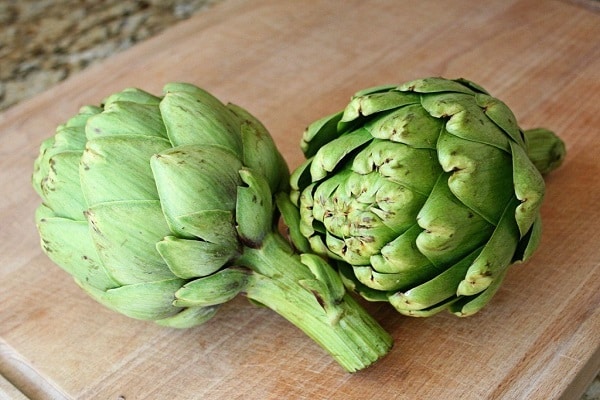
The pleasant taste and smell of an unusual plant lasts for a week, after which it begins to absorb other "aromas" and moisture from the environment. It is advisable to use the prepared dish immediately, without leaving it the next day.
Artichoke for women
In the old days, it was believed that Cynara is an aphrodisiac that has an aphrodisiac effect and promotes conception. Subsequently, these guesses were confirmed by official medicine. But this is just the tip of the iceberg. The benefits of a medicinal vegetable for women are multifaceted:

- Normalizes the functioning of the reproductive organs, improves pressure and blood flow in the small pelvis.
- It is a prophylactic agent for breast cancer. When consumed, the percentage of cancerous tumors is markedly reduced.
- It is useful for obese people, as it speeds up metabolic processes and breaks down the subcutaneous fat layer.
- By improving cell regeneration, it reduces the number of wrinkles and gives the face a healthy complexion.
During conception or when pregnancy is planned, it is useful for women to consume 100 g of artichoke 4 times a week. It helps conceive and increases folic acid levels, which are important in gestation. But it is not recommended during pregnancy.
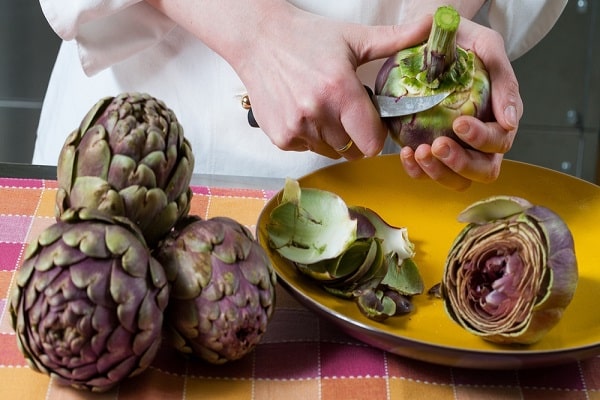
Ways to use artichoke
From a healthy vegetable, juices and extracts, extracts and teas can be prepared, each of which has its own unique effect.
Artichoke extract
To prepare the extract, use dried leaves, black resin and extract capsules. The manufacturer of such products is Vietnam. The packaging should describe the recipe for cooking, which must be strictly adhered to.
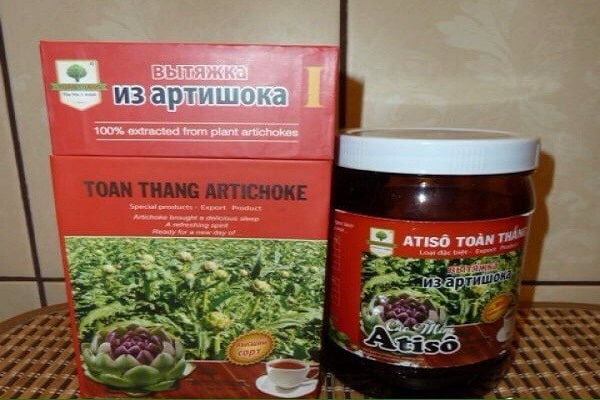
The hood is useful in the following cases:
- when you need to cleanse the body or blood;
- to restore liver function;
- in the treatment of the gallbladder and ducts.
Due to the diuretic and choleretic action, salts, toxins, and harmful compounds are rapidly removed. Works effectively for thyroid dysfunction.
The finished product is diluted with boiled water. In addition, the hood has some contraindications, so you need to enlist the support of a doctor. For example, resin can cause diarrhea.
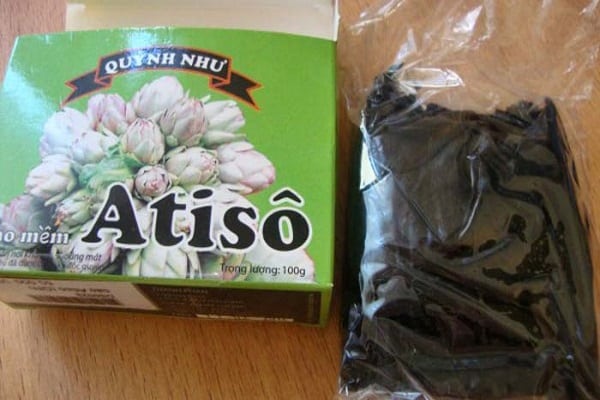
Artichoke juice
Juice is a concentrated beverage that is better absorbed. The body is enriched with the necessary components in the shortest possible time. But they use it not only for the prevention of vitamin deficiency. The beneficial properties of the juice are expressed:
- With pathologies of the oral cavity. In this case, it is mixed with honey (1: 1) and the mouth is rinsed up to 4 times a day.
- With the development of impotence, when it is taken in a course of up to 2 weeks, 50 ml 2 times a day. The juice should be squeezed out just before drinking.
- In case of constipation or flatulence, it helps in the composition with egg yolk and is taken before bed.
There are cases when the juice helped with dropsy, difficulties with urination, and poisoning with substances from the group of alkaloids.

Artichoke tea
Tea is a drink that is useful for people as a general tonic, it also helps with many diseases. It is recommended for diabetes mellitus, high cholesterol and sugar levels, and liver pathologies. Normalizes the activity of the cardiovascular system and the digestive tract.
Prepared as traditional tea: take 2 tsp of dry leaves in a glass of boiling water and leave for 5-7 minutes. It is desirable to have 3 times a day of tea, but a single intake will also be beneficial.
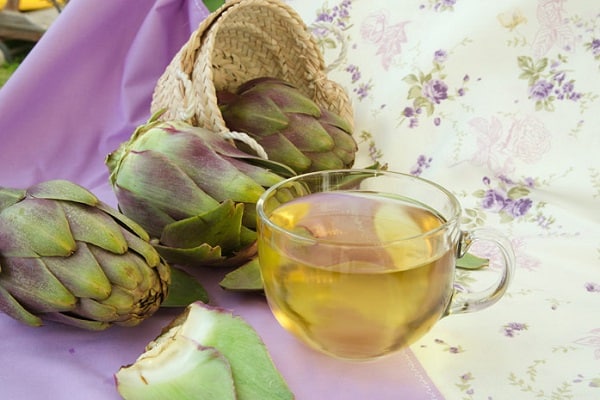
Artichoke extract
Dry and liquid extracts are available. The extract in the form of tablets is popular, since it is convenient to control the dosage and take for:
- improving the production of bile and its outflow;
- normalization of liver function;
- restoring digestion after fried or fatty foods;
- normalization of cholesterol metabolism.
The liquid extract is included in the "Mediterranean diet" for those who want to lose weight, as it affects the rate of lipid metabolism. It is also useful for people whose blood sugar levels are slightly elevated. The extract has the ability to remove excess fluid from the body and is essential for the natural renewal of liver cells.
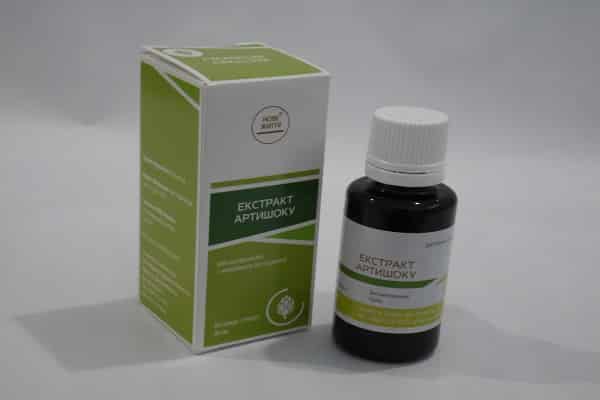
Artichoke in folk medicine
There is a mention of the medicinal properties of the artichoke in ancient herbalists, when healers prepared medicinal drugs from the plant. He helps:
- with various problems in the oral cavity: stomatitis, thrush, cracks in the tongue;
- with dropsy, when excess fluid accumulates in the body;
- to relieve inflammation on the mucous membrane of the stomach and intestines, while exhibiting an analgesic effect;
- protect the body in case of food poisoning;
- with baldness, if you rub the juice into the scalp;
- in the treatment of gout and rheumatism.

The artichoke is considered a dietary product. It is perfectly digestible both raw and when stewing, marinating or baking. Most often, it is included in the recipe for soups and salads, and it is useful at different stages of maturation.
Medicinal properties and widespread use are associated with the chemical composition of the vegetable, in which the substances are "selected" in certain combinations, which allows the plant to be used to the maximum to eliminate many problems in the body.
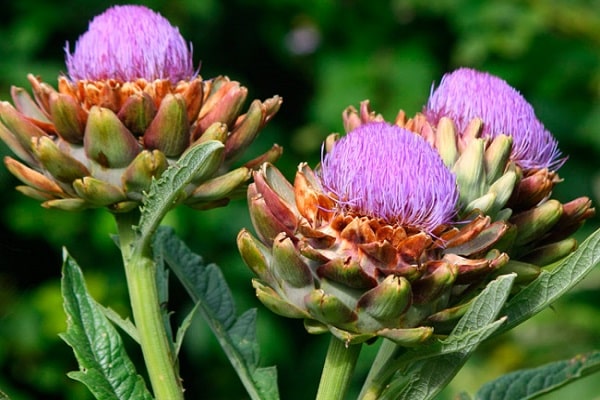
Contraindications and side effects
The number of positive qualities outweighs the number of contraindications, but it is necessary to take into account the possible harm to the body. Artichoke is not advisable to use:
- Children under 12 years of age who still have an insufficiently formed digestive system.
- People with liver failure.
- With blockage of the biliary tract, since the vegetable stimulates the outflow of bile.
- Pregnant women and lactating mothers, as the amount of milk decreases sharply.
- People who do not tolerate plant fibers, since a mature vegetable contains them in significant quantities.
- For food allergies and individual intolerances.
Try to grow an unusual and even slightly exotic product in our area and prepare juice as a remedy or a dish for gourmet households. If you like the artichoke, then welcome to our table.

The opinion of doctors
Doctors advise constantly taking artichoke both in the form of medications and as dietary supplements to those people who live in large cities with an unfavorable environment, abuse smoking and alcoholic beverages.
However, the use of drugs should be under the supervision of a physician. Otherwise, side effects in the form of low blood pressure, frequent bowel movements, dehydration and other dangerous manifestations can lead to the development of all sorts of complications.

